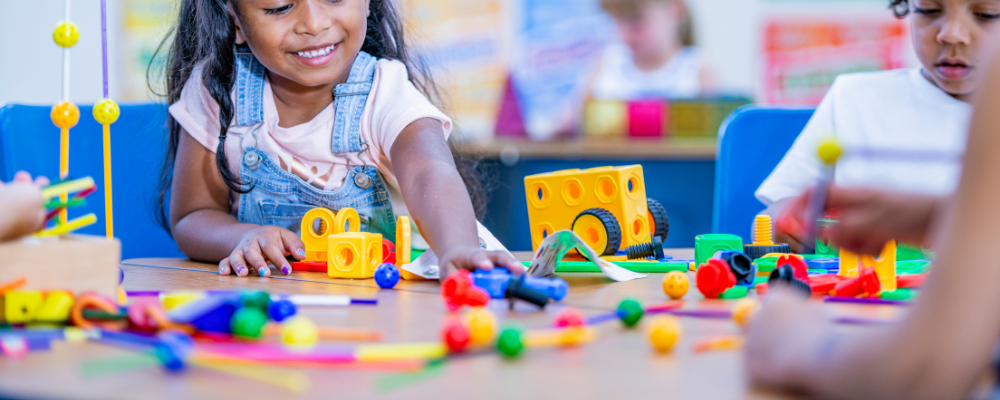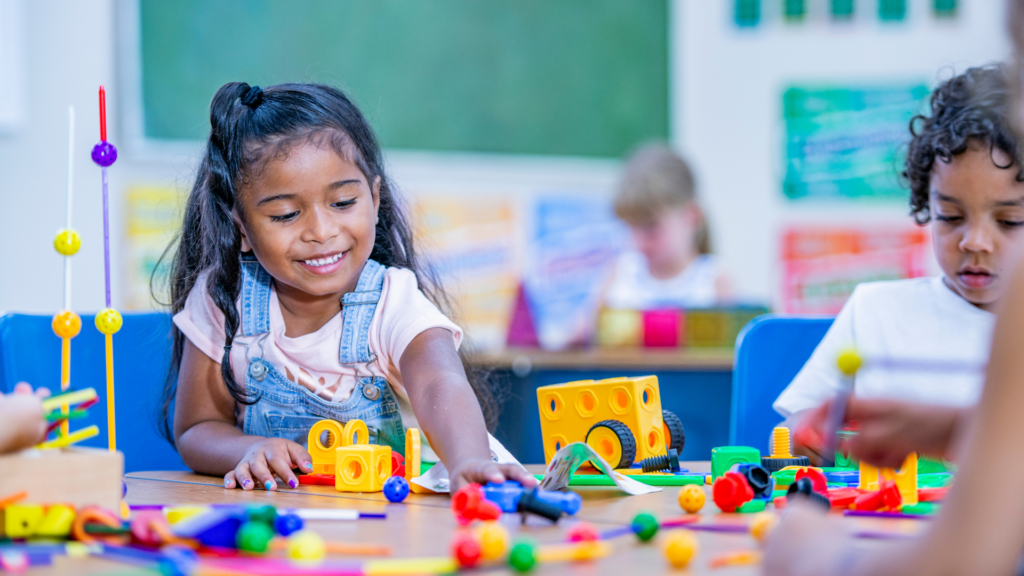
Research has shown that learning through play is an important part of a child’s development. Not only is play a great way for your child to release some extra energy which is a great benefit for families, but through play a child is able to find out who they are, even during infancy. Even in early development, a child’s mind is constantly expanding as they take in their environment and surroundings. The use of educational toys are crucial for a child’s development and can help teach a child many skills that they will be able to apply later on in their lives. Educational toys can teach a child problem solving skills, teach them about conflict resolution, as well as how cause and effect work. On top of all that, educational toys can teach children how to share and can also play a part in developing a child’s fine motor and gross motor skills while nurturing their creativity and imagination. Children can benefit from educational toys from as early as one month old. In this article, we will explore some examples of great educational toys based on age and the benefits that come with them.

Benefits of Educational Toys
Helps in Boosting Their IQ
Educational toys are designed in such a way as to develop a wide range of skills for a child. These skills include hand-eye coordination, memorization, motor skills, and identification skills. Kids who continuously develop these skills will gradually increase their IQ. Educational toys, as the name indicates, is a great way for kids to have fun and learn at the same time.
Enhances Development of Their Senses
Different types of educational toys help children develop their different senses. The most common sense that is enhanced with educational toys is a child’s visual sense. These are toys with bright colors and different textures. The other senses, like hearing, are developed through toys that make a lot of different sounds. These toys also provide a way for children to express themselves through the different sounds at certain times.
Enhances The Development of Problem Solving Skills
Educational toys like wooden puzzles are great to develop a child’s problem solving skills. They have a certain sequence to the puzzle that the child needs to figure out in order to solve it. This will be similar to experiences that they will have later on in their lives whereby they will have a problem and will need to think of the steps to take to get themselves out of the problem. The great thing about puzzles is that they can become more challenging. So, if you feel that a puzzle is too easy for your child, you can easily just find a more difficult one. As the puzzle becomes more complicated it will require your child to focus more and give more attention to the puzzle and think a bit more.
When to Introduce Certain Toys To A Child
1-12 Months
Sensor play at an early stage in a child’s life stimulates the child’s senses. As a child’s hand eye-coordination develops, families can look into including toys that require more interaction when played with by their children. As the child becomes more active, it is recommended that more problem solving toys be included in a child’s toy cabinet. These toys will help children work through conflict and will teach them cause and effect, such as what will happen when they do a certain thing, or the consequences of their actions. Solving the puzzle of the toy through a combination of guidance and trial and error will build the child’s confidence. Toys that promote movement will also be great toys to add to a child’s toy collection. Toys like stack blocks, mobiles, crawl around learning centers, and soothers are great to promote movement in an infant’s play.
12-24 Months
As a child reaches the one year milestone, they will become more mobile and active. Toys that help teach a child balance and coordination are great to introduce your child as they will also increase the child’s curiosity with their new-found mobility. Incorporating counting and numbers as the child begins to walk is a proven way to get them familiar with the terms and meaning of numbers, even if they don’t fully understand it yet. More types of educational toys to introduce to a child at this age are themed playsets. Themed playsets will help develop a child’s recognition skills. Great examples of toys that will help a child reach new milestones aged between 12-18 months include push cars, walkers, themed toys, and themed books.
2+ Years
As a child becomes older and more active, it is good to introduce them to toys that promote physical play. This is also a good time to incorporate toys that build cognitive skills. There are many toys that can help children practice their writing and fine motor skills, whether it’s just them doodling or scribbling, or learning to write their names. Games and books are also great as they teach children to visualize what they are hearing and vice versa. Reading books with a lot of images and colors with a few words will help a child familiarize the words they are hearing with how they look on the page. Examples of toys that can help develop a child’s cognitive skills include basketball hoops, tricycles, magnetic building blocks, and counting tables. When the child is playing with these toys, specifically toys where they can hurt themselves, like a tricycle, it is important to teach them the proper safety, like wearing a helmet. This won’t only keep them safe, but will also instill some basic safety concerns that will help them later on in their lives.
Educational toys are great for a child’s early stages of development. There are many benefits, the main one being that your child can have fun and learn at the same time. They also help develop skills that will form a solid foundation for a child’s development in their later years and throughout their lives.
